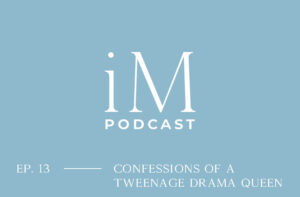No matter how old he or she is, when your child says hurtful things to you, it cuts deep. Some kids lash out with “I hate you” or “You’re the worst mom ever!” Others get more creative. I know a mom whose 11-year-old said she wished she’d go swim with hungry, angry sharks (because just hungry wasn’t bad enough). Another friend’s teen said he’d rather live in prison than in her home. Ouch.
It’s natural to want to lash out or even cry in response, but as the adult in the relationship, we have to use self-control. There’s a reason kids say hurtful things, and if we respond instead of reacting, we not only avoid a bigger fight, but we can help them handle their emotions in a healthy way and build a stronger relationship. Here are 5 good ways to respond when your child says hurtful things to you.
1. Try to not take it personally.
When you’d leap in front of a semi for your child but your child says, “I hate you,” it’s hard to not feel personally offended. You might be tempted to come back with, “After everything I’ve done for you, you say you hate me?”
When your child says hurtful things to you, it’s usually an expression of frustration or loss of control. Parents often forget that kids are communicating with brains that are not fully formed. The mean words are their way of expressing feelings rather than describing their actual feelings about you.
2. Give yourself a timeout.
When those words cut deep, walking away will help you avoid lashing out or responding in a way that fuels your kids’ emotions. Don’t mistake it for avoiding conflict though. If done properly, taking a timeout can actually be an opportunity for you to connect more deeply with your child.
If your six-year-old says “I wish you were dead,” you can respond by saying, “I can see you’re mad and I want to understand what you’re feeling, but right now, we both need a moment to cool off.” Those words show kids that you are willing to listen and care about their feelings. Remember, working through conflict with our kids is a teaching and bonding opportunity and shouldn’t be avoided.
3. Tell your child when he or she has hurt you.
Consider this: As an adult, when someone offends you, you hopefully work to separate the person from the action. You might tell your kids you love them but you don’t approve of their behavior. Kids don’t have the ability to conceptualize or verbalize that.
Validating your kids’ feelings does not mean you have to accept their hurtful words. It’s fair to tell your child, “I get that you’re mad, but we need to figure out better ways for you to express that than with meanness. That’s not how we handle things in this family.”
4. Focus on what comes after the hurtful words.
When your child says hurtful things to you, anything that follows might fall on your deaf ears, but that’s where you’ll find the real issue, so try to listen. If your child says “I hate you. You never let me do anything fun,” you might be tempted to react: “Oh, you hate me? Wait ’til you see how much fun you get to have now!” Here’s a better response: “Those words were rude and I won’t allow you to speak to me that way, but I’m willing to listen to why you feel like I don’t let you do fun things.” Then, when you’re less frazzled, actually ponder what he or she said. It could be a valid point.
If your child doesn’t include a specific grievance, but you’ve noticed a pattern in his or her behavior, it’s worth it to try to dig into that. If, for example, every day on the way to school, your daughter unloads meanness, consider that she might be taking school stress out on you. It might be time to talk about how to handle anger or frustrations. iMOM has great resources on emotional intelligence and anger issues.
5. Make sure your child knows you still love him or her.
Remember, behind your kids’ stinging words, they’re actually saying they need you. Putting up a wall because you’re offended is the opposite of what they need. But if your child says “I wish I had a different mom” and you come back with “I love you, sweetheart,” you’re going to sound sarcastic, so I’m not suggesting you say it immediately.
When our kids hurt us or push us away, it’s more important than ever to make sure they know they’re loved. As their parents, we model God’s love and forgiveness, and His love can’t be lost over an offense.

What’s your reflex when your child says hurtful things to you?










